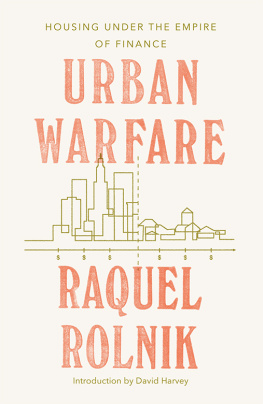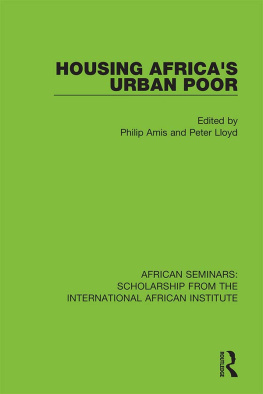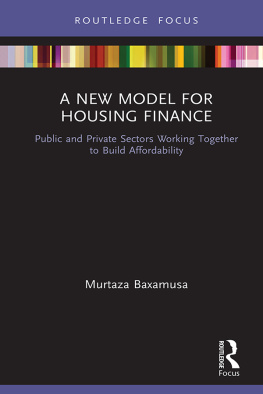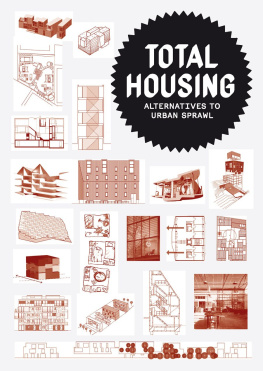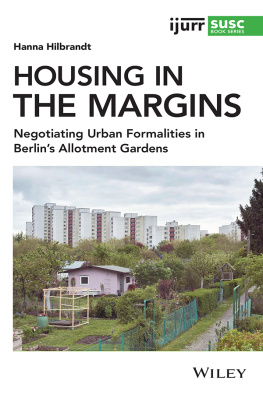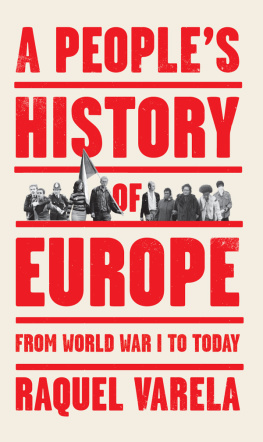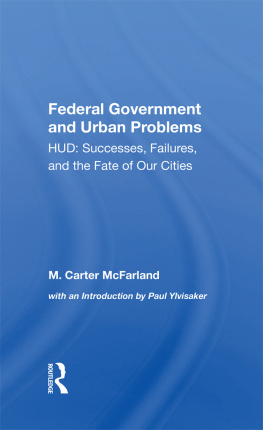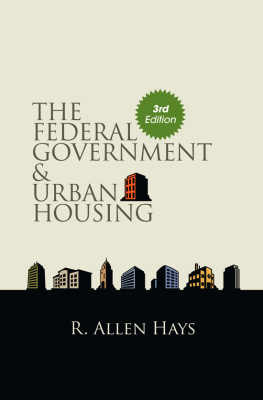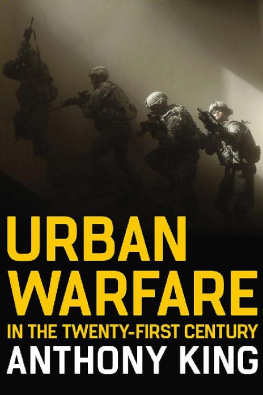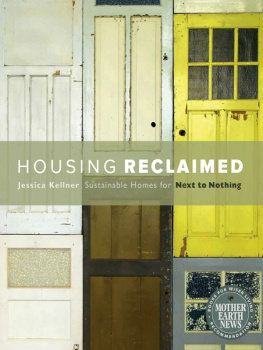Raquel Rolnik - Urban Warfare: Housing under the Empire of Finance
Here you can read online Raquel Rolnik - Urban Warfare: Housing under the Empire of Finance full text of the book (entire story) in english for free. Download pdf and epub, get meaning, cover and reviews about this ebook. year: 2019, publisher: Verso, genre: Politics. Description of the work, (preface) as well as reviews are available. Best literature library LitArk.com created for fans of good reading and offers a wide selection of genres:
Romance novel
Science fiction
Adventure
Detective
Science
History
Home and family
Prose
Art
Politics
Computer
Non-fiction
Religion
Business
Children
Humor
Choose a favorite category and find really read worthwhile books. Enjoy immersion in the world of imagination, feel the emotions of the characters or learn something new for yourself, make an fascinating discovery.
- Book:Urban Warfare: Housing under the Empire of Finance
- Author:
- Publisher:Verso
- Genre:
- Year:2019
- Rating:3 / 5
- Favourites:Add to favourites
- Your mark:
- 60
- 1
- 2
- 3
- 4
- 5
Urban Warfare: Housing under the Empire of Finance: summary, description and annotation
We offer to read an annotation, description, summary or preface (depends on what the author of the book "Urban Warfare: Housing under the Empire of Finance" wrote himself). If you haven't found the necessary information about the book — write in the comments, we will try to find it.
Urban Warfare: Housing under the Empire of Finance — read online for free the complete book (whole text) full work
Below is the text of the book, divided by pages. System saving the place of the last page read, allows you to conveniently read the book "Urban Warfare: Housing under the Empire of Finance" online for free, without having to search again every time where you left off. Put a bookmark, and you can go to the page where you finished reading at any time.
Font size:
Interval:
Bookmark:


Housing under the Empire of Finance
Raquel Rolnik
Foreword by David Harvey
Translation by Felipe Hirschhorn

Work published with the support of the Brazilian Ministry
of Culture / National Library Foundation
Obra publicada com o apoio do Ministrio da Cultura
do Brasil / Fundao Biblioteca Nacional

First published in English by Verso 2019
First published as Guerra dos lugares: a colonizao
da terra e da moradia na era das finanas
Boitempo 2015
Translation Felipe Hirschhorn 2019
Chapter 6 and afterword translation Bianca Tavolari 2019
Foreword David Harvey 2018
All rights reserved
The moral rights of the author have been asserted
1 3 5 7 9 10 8 6 4 2
Verso
UK: 6 Meard Street, London W1F 0EG
US: 20 Jay Street, Suite 1010, Brooklyn, NY 11201
versobooks.com
Verso is the imprint of New Left Books
ISBN-13: 978-1-78873-160-7
ISBN-13: 978-1-78873-300-7 (HB)
ISBN-13: 978-1-78873-161-4 (US EBK)
ISBN-13: 978-1-78873-162-1 (UK EBK)
British Library Cataloguing in Publication Data
A catalogue record for this book is available from the British Library
Library of Congress Cataloging-in-Publication Data
A catalog record for this book is available from the Library of Congress
Typeset in Sabon by Biblichor Ltd, Edinburgh
Printed in the US by Maple Press
For my mentors, Gabriel Bolaffi, Lcio Kowarick,
Warren Dean and David Harvey
For Eugnia and Teresa, the two ends of the
ribbon of strength and love that unites us


R aquel Rolnik has written a magisterial survey and analysis of what is fast becoming one of the most compelling global crises of our time: the seeming inability of our increasingly dominant free market economic and political system to furnish adequate, affordable housing for the mass of the worlds population. While problems of housing provision have often been addressed in the context of the politics and policies of particular nation states, never before has such a broad global comparative work of the sort here presented been attempted.
Rolnik has been able to draw on a wealth of experience as an urbanist and urban planner. As director of the Planning Department of the city of So Paulo, she had to deal with the tumultuous problems of housing provision in one of the fastest-growing metropolitan areas of the world. As national secretary for Urban Programmes of the Brazilian Ministry of Cities in the first Lula Administration, she fought to put teeth into the clauses of the Brazilian constitution designed to protect the right to the city. But it was her years as UN special rapporteur that provided her with the basic raw materials to compile this remarkable study.
Her method of enquiry when she was UN rapporteur is worthy of note. Instead of basing her work on the words of government officials alone, she talked with those marginalised populations most affected by poor housing conditions and failing policies on the ground. This brought her into contact with social movement activists who furnished her with multiple grass roots perspectives on their vast and ongoing daily struggles to sustain and create adequate housing provision all too often under the most trying and sometimes even repressive circumstances.
While every city has its own rich and diverse particularities, what becomes apparent from Raquels penetrating and moving accounts is that the dilemmas of adequate housing provision also have a universal dimension, thanks in part to the export of a particular model of housing provision under the aegis of international institutions (such as the World Bank and the IMF, along with the Habitat Conferences sponsored by the UN).
The contemporary obsession with market provision, with land and property titling and the extension of private property arrangements, with home ownership and access to credit and finance, along with the so-called deepening of financial arrangements to build a secondary mortgage market, is overwhelming. While often well-meaning and on occasion sufficiently robust to be judged successful (particularly with respect to the securing of social control), the main effect of these obsessions has been to open the path, as Raquel shows, to the exploitation of housing markets as vehicles for speculative gain for landholders, developers and financiers.
Increasingly, the habit of shaping public policies to counter recessions and ward off depressions by building houses and filling them with things has given a macro-economic role to housing markets that is more about stabilizing capitalism than addressing deficits in housing for marginalized populations. The result has all too often been evictions and displacements of those populations in the name of urban upgrading and renewals that disrupt supportive social networks, however fragile and tenuous. The neighborhood may improve but the needy people who once lived there have disappeared.
On some occasions, market reforms have allowed marginalized and impoverished populations to temporarily accumulate assets (through, for example, sub-prime lending and other forms of micro-finance) only to have those gains erased through subsequent financial manipulations and crises. The most spectacular example is, of course, the foreclosure on more than 7 million households in the United States after 2007/8 and the loss of more than 70 per cent of the asset values held by low-income black populations. The endless accumulation of capital by financial institutions has largely occurred at the expense of the well-being of those populations that social policies were supposed to serve.
The political and social resistance to this system is everywhere in evidence, and Raquels documentation of this widespread struggle from below to secure adequate housing rights and appropriate shelter is in many respects inspiring. Social movements fight and struggle to acquire or take back the right to a decent house in a decent living environment endowed with adequate life chances. The commodification of housing provision over the last forty years of neoliberal politics has not gone uncontested. While the well-to-do are furnished with abundant opportunities to indulge their fancies and their often bizarre tastes with multiple luxury mansions in a variety of privileged locations and climes, the mass of the worlds population is either technically homeless or at best crammed together in insalubrious dwellings in fetid locations or, in the case of the swelling numbers of global refugees fleeing violence, war and environmental disasters, confined to tent cities in remote locations cut off from any kind of economic or social opportunities to re-establish a normal life. To these populations the idea that a decent house in a decent living environment with access to adequate life chances might be a basic human right must seem like a cruel utopian dream.
Font size:
Interval:
Bookmark:
Similar books «Urban Warfare: Housing under the Empire of Finance»
Look at similar books to Urban Warfare: Housing under the Empire of Finance. We have selected literature similar in name and meaning in the hope of providing readers with more options to find new, interesting, not yet read works.
Discussion, reviews of the book Urban Warfare: Housing under the Empire of Finance and just readers' own opinions. Leave your comments, write what you think about the work, its meaning or the main characters. Specify what exactly you liked and what you didn't like, and why you think so.

